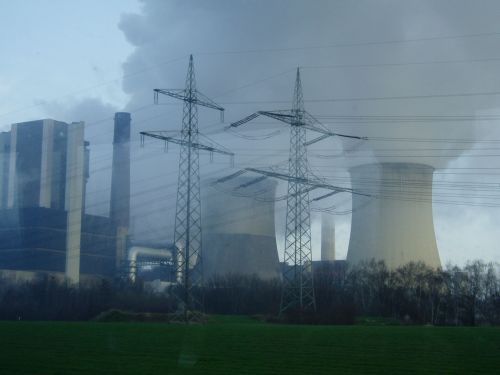
NSC-FoE Hungary: Hungary could escape from the trap of fossil energy dependence with plans focusing and supporting the energy transition of households more. English translation of our PR of 15 June 2023.
Energy transition would slow down (and backtrack) and our dependence on fossil fuels would increase if the Hungarian National Energy and Climate Plan (NECP) review and the HU REPowerEU & RRF Loan Plan (as a key source of financing for NECP implementation) would be finalized with the recently planned energy investment cornerstones. Both plans are approaching their submission deadlines, while they will fundamentally shape the actions, investments and financing of the Hungarian climate and energy policy in the medium term. In addition, the Hungarian government is expected to decide on the fate of the Mátra Power Plant by the end of June. The NSC-FoE Hungary (MTVSZ) calls for a planning that prioritises and supports households’ energy efficiency and is based on a meaningful public consultation.
EU funds for accelerating energy transition
By the end of June 2023, each Member State is required to prepare its own revised National Energy and Climate Plan (NECP), in line with the EU's medium and long-term (2030 and 2050) climate and energy policy goals and the Paris Agreement, aiming to accelerate the energy transition, also in the context of the fossil energy crisis. And under the EU REPowerEU, which also aims to accelerate Member States' energy transition and reduce their dependence on imported (Russian) fossil energy sources, national REPowerEU plans should be developed and submitted as soon as possible by the end of the summer. As the Hungarian government is still applying for the recovery loan, the REPowerEU & recovery loan plan for the HUF 3,300 billion EU funding must be submitted to the European Commission as one package.
We need a green economic transition instead of re-industrialisation
The European Commission is also concerned about the plans: its recent Country Specific Report urges key elements such as creating a regulatory environment that consistently supports a mix of renewable energy sources, modernising the grid and improving the energy efficiency of buildings to reduce total gas consumption. Indeed, the EU says the government should strengthen energy cooperation with Member States and provide the investment, skills and retraining needed to make the green economy transition. The opposite seems to be the case, i.e. maintaining dependence on fossil fuels.
National NGOs, including the NSC-FoE Hungary (MTVSZ), have made comments and recommendations in all relevant planning processes, including the NECP review and the REPowerEU & recovery loan plan. On 12 June 2023, NSC-FoE Hungary and the Clean Air Action Group sent a letter to the relevant ministries on the latter, saying that the REPowerEU&RRF should focus on energy efficiency and reducing energy demand in the homes, rather than on health-destroying energy mega-investments that deplete our natural resources.
There is cause for concern, as in Hungary the economic policy priority has been to encourage re-industrialisation, and the government plans to meet the significant energy needs of incoming foreign investors, giga companies largely with fossil-fuel power plants. These would be largely served by the three planned new gas-fired power plants (total around 1600 MW capacity), which would not be needed in an ambitious energy transition scenario, according to a new study by the Regional Energy Economics Research Centre (REKK). Likewise, the plan to restart the old lignite units of the Mátra power plant, which is currently half lignite and half biomass-fired, is expected to be decided by the government by the end of June, increasing fossil dependency on forced reindustrialisation. Indeed, if the lignite mines and lignite firing at the country's largest fossil power plant were to continue to operate after 2025 or even until 2029, it would seriously increase the health and environmental burden on the population. It would also impede a just energy transition.
"The just transition in the counties of Borsod-Abaúj-Zemplén, Heves and Baranya, supported by EU funding, aims to ensure that the development and investment in the climate-neutral economic transition is carried out through the creation of climate-friendly, green economy jobs and retraining. The main beneficiaries should be local small and medium-sized enterprises, municipalities and workers themselves. As long as old lignite units and lignite mines are being prepared to operate for many years, recruiting workers, then retraining of the same workforce and green economy development cannot start and so the 3 counties could lose the EU money for just transition." - said Alexa Botár, MTVSZ Climate and Energy Programme Director.
Adequate public consultation to help improve energy efficiency in households
"in the plans, measures and instruments are needed to gradually reduce overall domestic fossil energy use. EU funding and domestic public funding to accelerate the energy transition in Hungary should be considered a public interest in the design process of the NECP and of the REPowerEU & RRF loan. In order to ensure that the interests of the Hungarian public are taken into account in both planning processes, the plans should be published as soon as possible and a meaningful, appropriate public consultation should be launched", Alexa Botár stressed.
According to the expert, ending dependence on fossil fuels should be a priority and this requires strategic plans and a comprehensive regulatory environment with a greater focus on energy renovation of residential buildings and support for bottom-up renewable energy communities. This would greatly contribute to strengthening Hungary's energy independence and thereby increasing domestic security of supply. To this end, a wide public consultation would need to take place before the end summer of 2023, so that the Hungarian plans can be substantially improved and amended before the EU deadline.
The referenced materials are:
MTVSZ-LMCS letter to the ministries (12 June 2023): https://www.mtvsz.hu/uploads/files/nektrepowereulevel2023jun12.pdf
European Commission Country Specific Report in English (May 2023): https://commission.europa.eu/system/files/2023-05/COM_2023_617_1_HU.PDF
REKK study: the possibility of Russian gas exports in Hungary (31 May 2023): (in Hungarian) https://rekk.hu/elemzes/341/az-orosz-gaz-kivezetesenek-lehetosege-magyarorszagon , brief in English: https://rekk.hu/analysis-details/341/russian-gas-phaseout-in-hungary
***







